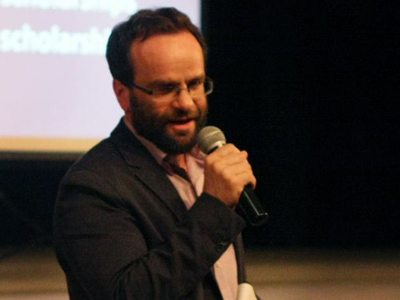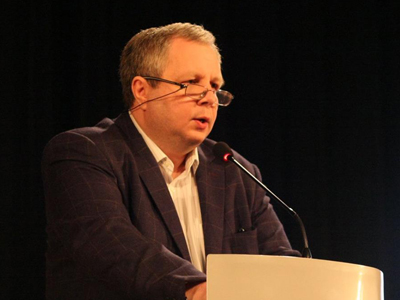Georgia's education system seems to be broken. It is no longer corrupt, which is good, but it does not deliver the quality that we all want and need. Our teachers are among the lowest paid in Georgia and in the world. Quality is an issue at all level of education, starting with preschools and ending with graduate and post-graduate education.
On Tuesday, April 19, 2016, ISET organized a public discussion on the question “Do We Need No Education?” This event features talks by ISET’s President Eric Livny and Giorgi Bakradze, a Master of the intellectual show “What? Where? When?” and Advisor to the Chairman of the National Bank of Georgia.
 Giorgi opened the discussion by reviewing the flaws of Georgia’s education system. He used the example of the 1961 Soviet Georgian classic “Udiplomo Sasidzo” (Diploma-less Groom) to describe the national craving for a university diploma as a status symbol. Excessive demand for diplomas, according to Giorgi, feeds into demand for education (any) that does not reflect labor market conditions. The result is high youth unemployment and a huge waste of people’s time and resources. He also emphasized the possibilities existing in today’s digital world to study online, which is bound to transform the role of teachers, schools and universities in the medium term.
Giorgi opened the discussion by reviewing the flaws of Georgia’s education system. He used the example of the 1961 Soviet Georgian classic “Udiplomo Sasidzo” (Diploma-less Groom) to describe the national craving for a university diploma as a status symbol. Excessive demand for diplomas, according to Giorgi, feeds into demand for education (any) that does not reflect labor market conditions. The result is high youth unemployment and a huge waste of people’s time and resources. He also emphasized the possibilities existing in today’s digital world to study online, which is bound to transform the role of teachers, schools and universities in the medium term.
Eric Livny’s talk focused on the challenges of delivering general education in remote rural locations, more or less following the structure of his TEDx presentation. During the Q&A session he addressed other topics such the contrast between Georgia’s glorious education traditions and today’s realities. In particular, he answered questions about the role of businesses in delivering vocational training, as well as governance problems and institutional inertia within Georgian universities.
|











